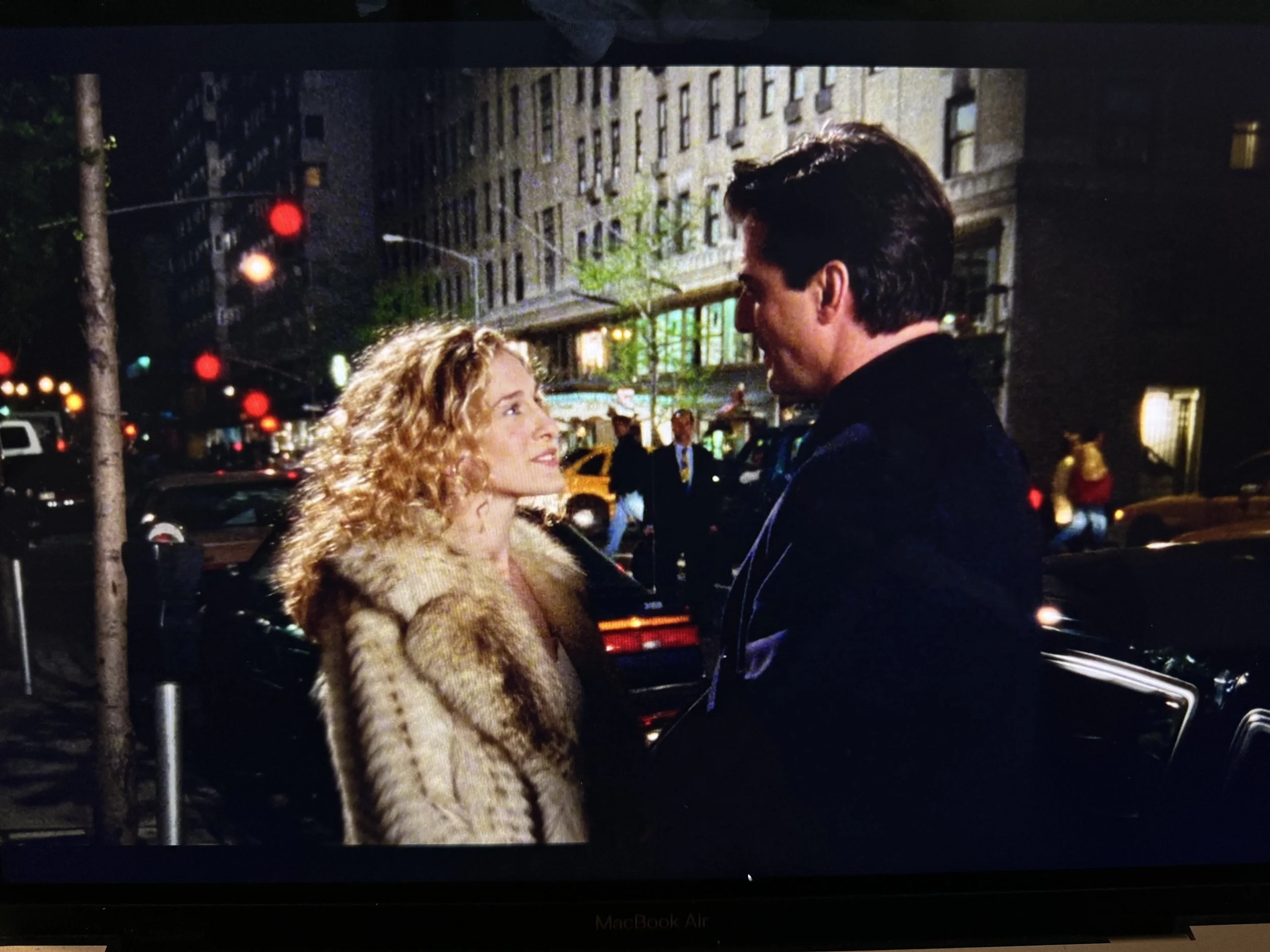Secret sex and standing up for yourself
By Sara Twogood, MD
Secret Sex is the sexual anthropologic topic in Sex and the City to Season 1: Episode 6.
Carrie’s research this episode revolves around “secret sex”. As Carrie helpfully defines it: “having great sex with people we are ashamed to introduce to our friends.”
Carrie runs into her hot, successful friend Mike Singer at a Chinese restaurant. She’s on a date with Mr. Big; he’s on a date with … well, Carrie doesn’t know. He doesn’t introduce her. Later she asks him why he was so awkward and he confides that even though Libby (his date) is lovely and he feels most like himself around her and the sex is amazing – basically an ideal partner - “she’s not the right woman for me in the larger sense so I keep her a secret”. It turns out she doesn’t have the right job or the right looks for his circle of friends or his high-profile job.
Carrie gets into her head that Mr. Big is keeping her a secret too.
And, throughout, Carrie is contemplating whether secrete sex is good or bad.
The good: exempts you from judgments of the world. It’s just you and the other person, for that moment at least.
The bad: it’s just another way to compartmentalize our lives and emotions; not letting someone fully into your sphere.
But this is the thing: when you are the person being kept a secret, it doesn’t feel good. And when anything related to having sex doesn’t feel good or makes us feel less than, we should communicate about it with our partners and stick up for ourselves.
Libby (who, btw was beautiful – even with the show trying to make her look frumpy) breaks up with Mike because of his behavior.
And Carrie gets drunk and confronts Mr. Big about not introducing her to a friend in the street, not coming to meet her friends, taking her to the Chinese restaurant, twice, where people go not to be seen but to remain private. He has perfectly good explanations for all of these. Getting drunk is never the best form of communication – but the sticking up for herself certainly is.
We deserve this.
So here are tips if you feel you’re in the position of being both being kept a secret / not being included in your partners’ life and just in general feeling less than in a relationship. These tips are for people in safe, otherwise generally ok relationships and exclude those of domestic violence or when your safety is in danger.
Assume good intent. For people we love (and who are not known to be manipulative assholes), approach hard conversations trying to understand their intents and motives, assuming they are good. This approach helps our partner be more open and honest and not immediately defensive. At the end of the conversation you may feel they actually have bad intent and you were wrong about your initial approach – but let them show you that. It will make the situation more clear.
Avoid alcohol, drugs, and other behavior and mind-altering substances during these conversations. It may seem like they provide a buffer and some needed liquid courage. But they will blur the conversation. You may not be able to express yourself clearly. Your partner may not take the conversation seriously if you only bring it up when substances are involved – they will think it’s the alcohol / drugs / substances talking and not truly you.
Before you approach the topic, be mindful of what you hope you’ll get FROM YOURSELF from the conversation. Do you want to leave with actionable steps to try to fix the issue at hand? Do you want to leave feeling you did not get angry, or you did not cry, or you were finally able to say what’s on your mind? This hope cannot be how the other person reacts - you have no control over them. You can’t say “I want them to apologize” because you can’t control their genuine feelings and actions. You can only control how you respond to that person. Think about what YOU want and how that will fit into how you feel about the conversation in the end.
It seems trite to say, but actions speak louder than words. One conversation does not fix everything – it is often just the starting point.


